*This is Part Two of the Two-Part Article Series on the Olympics and International Politics*
The Olympics are more than just a stage for international politics. They are a true reflection of the world order and what goes on in it. Hosting an edition of the Olympics is the most beneficial way of gaining soft power for any country. During the Cold War, the Olympics was not only a competition for power and a symbol of pride for the two countries, but also a representation of their global dominance. While the Olympics have been the victim of international political impact multiple times throughout their history, they keep showing their ability to overcome those challenges and continue to bring the international community together to promote sports with the objective of peace.
In the first part of the series, we saw the various instances of the overlap between politics and the Olympics. While these incidents in isolation provide a general idea of the relationship, a deeper underlying understanding of the same can be examined through the direct use of concepts from IR (International Relations) theory. When you look at all the political events that have occurred at the Olympics, including protests, boycotts, violence, and much more, you see their background returning to an important social, economic, or political issue in global politics. Thus, the Olympics are not just a stage for international politics, but also a true reflection of the world order and what goes on in it. All these major non-sporting incidents at the Olympics stem from real-world problems of discrimination, conflict, and power realities. For example, the cancellation of the Olympics 1916, 1940, and 1944 was all due to the World Wars. If we compare the two, the truly global sports competition was cancelled due to the war that affected the entire world.
Another aspect where the connection between the Olympics and international politics is visible is by looking at the performance of countries in the games themselves. If one were to try and compare the countries that have won the most medals at the Olympics games with the major world powers, the same names would feature at the top of both lists more often than not. All the top medal-winning countries are those that have been world powers for at least some period of time. The rise and fall of powers can also be seen in medal patterns across multiple Olympics. For example, the rise of Germany, Japan, and China and the fall of the Soviet Union are examples of how these countries gained and lost medals corresponding to their political, economic, and military positions. However, although this correlation generally holds true, there are multiple exceptions to this theory. While the top medal winners might be major powers, the same relationship between power and medals might not be seen in the middle and bottom of the table. Similarly, the number of medals a country has won might not be proportional to the power that country holds. Therefore, multiple factors such as population, infrastructure, geography, and sporting ecosystem play a huge role in a country’s long-term Olympic performance. However, even such factors have a different impact on different countries’ faring at the games.
All the top medal-winning countries are those that have been world powers for at least some period of time. The rise and fall of powers can also be seen in medal patterns across multiple Olympics.
Soft Power and Importance of the Olympics
Going beyond the representation of the world’s political actualities, specific concepts of IR theory can show how countries use the Olympics for political gains through positive means instead of dissent. Up till now, we have seen how means such as protests, boycotts and violence have been used. These are ways of opposing some aspects of the Olympics. However, there are also ways in which countries have used the opportunity to compete or host the games as a means to achieve their political goals. A great example of how to understand this is through the concept of soft power. Coined by American political scientist Joseph Nye, the term is supposed to be the non-coercive strength of a nation. Unlike hard power, which is based on economic and military might, soft power is derived through attraction through means such as culture, political values, and foreign policy. This can include a range of factors, including art forms, cuisines, tourism, sports, and much more. Hosting an edition of the Olympics is the most beneficial way of gaining soft power for any country. It is for this very reason that multiple cities and countries apply and bid for the opportunity to host the prestigious event.
The cost of organising an entire Olympic tournament in the twenty-first century is easily in the range of billions of US dollars. Planning such an event requires years of work, which starts even before the previous Olympics have ended in some cases. All these capital and labour-intensive tasks include building the infrastructure for hundreds of different sports disciplines, the Olympic Village to house the athletes, and other necessary preparations to make the city tourist-friendly. The most important times of any Olympics are the first and last days, respectively. While the smooth passing of the entire duration of the games is necessary for a country’s reputation, the opening and closing ceremonies are the biggest opportunities for the host to truly benefit from the Olympics. As the years pass by, the ceremonies keep getting bigger, longer, and grander. Millions of dollars are spent solely on these events, and countries do their best to make them memorable by showcasing their own culture and values through dance and music performances. Every Olympics since 2000 has been watched by more than three billion people across the world. In the twenty-first century, each summer Olympics has sold over six million tickets in aggregate. The Olympics serve as a marketing tool for countries to boost their soft power while also generating secondary economic benefits such as tourism, viewership, and sponsorships.
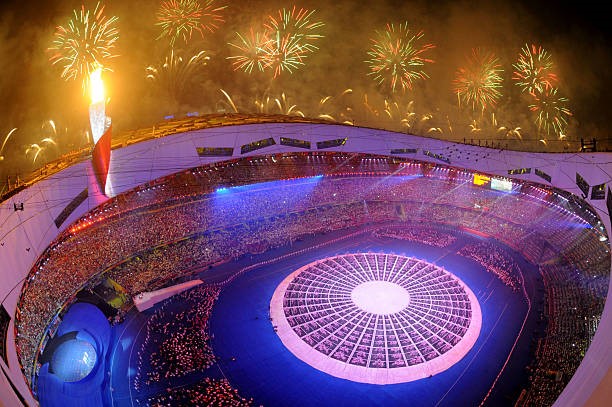
However, it is not solely the host of the Olympics that benefits from the event. Every participating contingent gets to parade at the opening ceremony. Athletes usually appear at this event, showcasing their national flag as well as the traditional clothes of their country. The 1964 Olympics are the best example of how the Olympics contribute to a country’s soft power. Held in Tokyo, the event signified the return of a rejuvenated Japan to the world stage. After the Second World War, Japan’s global image severely deteriorated, and they were even left out of the first post-war games held in 1948. The 1964 Olympics not only presented Japan as a peaceful and welcoming nation, but they also showcased the country’s progress in development. Furthermore, the host nation went on to finish third on the medal table. From then on, Japan has gone from strength to strength in accumulating both hard and soft power, as well as consistently performing at a high standard on the sporting front too.
The Olympics serve as a marketing tool for countries to boost their soft power while also generating secondary economic benefits such as tourism, viewership, and sponsorships.
Power Projection and Foreign Policy
Another approach to viewing the Olympics is through the lens of power projection. While the term is used in IR to describe a state’s military capabilities outside its own territory, the same can also be applicable to the Olympics to some extent. It is a well-known fact that countries perform significantly better when they are the hosts of an Olympic tournament compared to one abroad. The increase or decrease in the country’s medals when they host or do not host the games is considerable. Therefore, when judging the leaders of the medal table, it is necessary to keep in mind the location of where the Olympics took place. For example, the US has been unchallenged in first place ever since the 1992 Summer Olympics. However, in 2008, the Chinese contingent was able to outscore the United States in the number of gold medals they won and went on to top the table even though the US finished with more overall medals. Similarly, the UK’s performance in the 2012 London Olympics was a major improvement on their performance in Beijing. This also makes us wonder whether the ‘home court advantage’ also means an ‘away court disadvantage’. For example, if we consider the US and China, while both countries perform well at their home Olympics, they also perform well at other Olympics. However, what happens when the venue happens to be the home court of their real-world political and power rivals? While this argument might be hypothetical, there have been instances where countries have underperformed in nations with whom they share politically animosity.
The Olympic games have also been used by some countries as a direct means of achieving their foreign policy goals. While not all states are successful in doing so, there are a few examples of countries that have made significant diplomatic gains from the grand international competition. A common criticism of the Olympic committee has been that it often gives undemocratic and dictatorial regimes the opportunity to host the Olympics. This in itself might not be a problem, but the implications it carries are of concern. For example, the 1936 Berlin Olympics helped the Nazis project a positive international image, and the 2008 Beijing Olympics were a huge success for China. In the first case, the Nazis imposed racial atrocities on the Jews, while China was severely criticised for its human rights violations. The same allegations are being made against China during the ongoing 2022 Winter Olympics as well. The problem is that the treatment by the above regimes against the Jews and the Uyghurs, respectively, is too severe to be considered under the four atrocities mentioned in the United Nations’ Responsibility to Protect endorsement. However, the opportunity worked out with great success for the host countries and the mentioned governments. Hosting the Games assists such regimes in masking their concerns and projecting a peaceful image to a global audience. Thus, while the Olympic aim is only to keep politics and sports separate, in doing so they might be indirectly harming movements and causing such social groups to suffer.
The 1936 Berlin Olympics helped the Nazis project a positive international image, and the 2008 Beijing Olympics were a huge success for China. In the first case, the Nazis imposed racial atrocities on the Jews, while China was severely criticised for its human rights violations.
Another example of exemplary Olympic use in foreign policy is by the newly formed state of Kosovo. The Republic of Kosovo was a former autonomous region of Serbia that declared its independence in 2008. After declaring independence, the key challenge for any country is to gain international recognition. Kosovo used sports as a means to make this process faster and easier. Kosovo made huge efforts and managed to get into multiple international sports organizations, including the IOC and the international organisations governing football, basketball, tennis, formula racing, etc. By 2020, Kosovo would have received international recognition from roughly half of all UN members, as well as membership in other intergovernmental organizations. This makes it an example of how the Olympic games and sports can be used as a powerful means of foreign policy when used to their full potential.
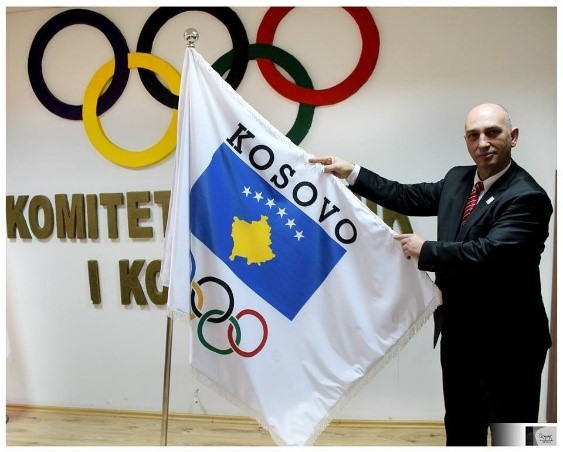
Source: Besim Hasani / Inside the games
The Cold War Olympics: 1948–1992 USA vs. USSR
All the discussed events and theoretical concepts have established a clear and complex link between international relations and the Olympic games. There is one such period in Olympic history that is an amalgamation of every kind of political event and theoretical power concept, known as the Cold War. After allying to defeat the Axis powers in World War II, the United States and the Soviet Union entered into a battle to gain political and ideological hegemony over the world. Although the countries did not engage in any major military conflict directly, the competition between the two was no less than a war. Apart from competition on traditional issues such as economic and military strength, forming strategic alliances and engaging in a nuclear race, the countries also fought hard in non-traditional areas of sports and space exploration. Both the Winter and Summer Olympics had become a battleground for the countries’ athletes to outperform the other teams. When the tensions between the two countries rose to an extreme in the late 1970s and 1980s, the politics showed at the Olympics as well. In 1980, the Moscow Games faced the biggest boycott in Olympic history. More than 60 countries boycotted the event under the leadership of the US to protest the Soviet invasion of Afghanistan in 1979. Around 15 countries, including the USSR and its allies, hit back by boycotting the 1984 SUmmer Olympics held in Los Angeles.
The rivalry spilled on to the field as well, but in a good way. The US and USSR athletes and teams had some very competitive sporting battles, even pulling off great upsets in the process. The Miracle on Ice refers to the US victory in the ice hockey finals where they defeated defending champions and favourites, the USSR, coming back from a deficit going into the final quarter of the game. Similarly, at the 1988 Olympics, the Soviet basketball team upset the Americans in the semi-finals and went on to take the gold medal. This was the first time that the US had not reached the gold medal match in the sport and had to settle for bronze. Not only was the Olympics a competition for power and a symbol of pride for the two countries, but it was also a representation of their global dominance. Throughout the Cold War period, the US and USSR were the only two countries to top the medal table for 12 consecutive Summer Olympics between 1948 and 1992. And as is visible from the statistical data mentioned below, the Cold War was as fierce at the Olympics as it was anywhere else. While the USSR may have lost the political struggle, they were unquestionably triumphant on the world’s most important sporting stage.
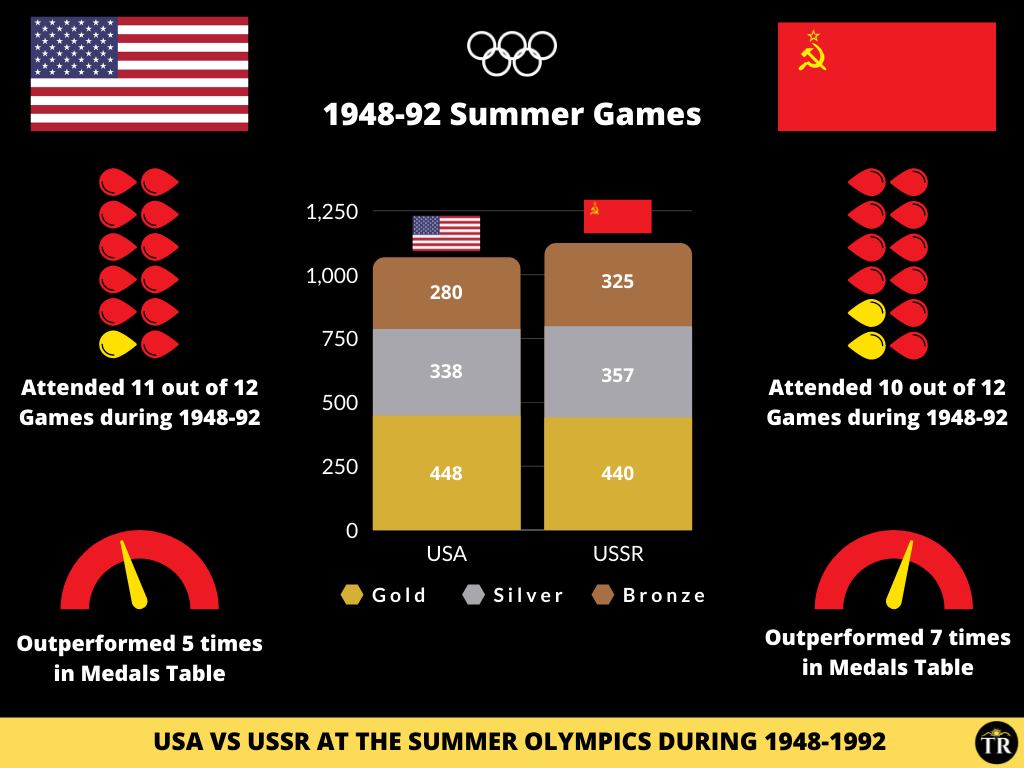
**The medals of the Unified Team of former Soviet Countries have been considered for USSR in the 1992 Summer Olympics.
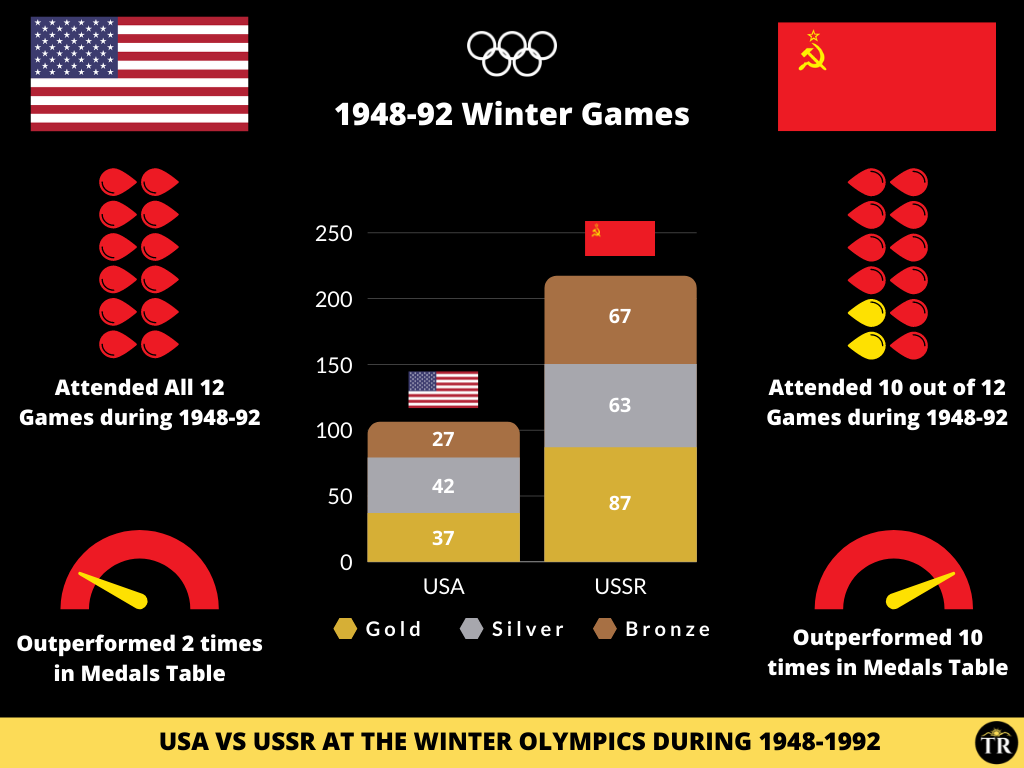
**The medals of the Unified Team of former Soviet Countries have been considered for USSR in the 1992 Winter Olympics.
The Olympic Spirit Overpowers Politics
1992 was a special year in Olympic history. It was the first set of summer and winter games to take place following the disintegration of the Soviet Union and the consequent end of the Cold War. While the countries had separated, the NOCs were yet to be inducted into the IOC. Thus, they competed at the Winter Olympics as a unified team and went on to finish second overall. By the time of the Summer Olympics, the individual NOCs were formed and inducted, but twelve of the fifteen countries, excluding the Baltic states, decided to compete as the Unified Team. While the players belonging to the contingent represented a single team, they were allowed to hoist the flag and play the national anthem of their respective independent states during the medal ceremonies. The Barcelona Olympics are seen as a victory of the sporting spirit and the essence of the Olympic movement over the political reality of the world. Even after being divided into separate countries and losing the Cold War, the former Soviet athletes went on to compete at the Olympics in unity. This unity paid off in a big way, as they went on to top the 1992 Barcelona Olympics medal table and emerge victorious over the rival United States.
Similar to this, there have been some instances that have left a mark on the event as the victory of sports and the Olympic spirit over any political conflict or problem. In 2016, the IOC formed a separate Olympic team consisting of a few athletes to represent the millions of refugees who have been displaced due to conflict globally. The contingent went on to participate in the 2016 Rio and 2020 Tokyo games. This event symbolised that even though refugees might face grave situations politically, the Olympics is still a place that provides them with an equal opportunity to compete against the best athletes. Another instance of Olympic triumph is the 2018 Pyeongchang Winter Olympics, which came exactly thirty years after the 1988 Seoul Games. Unlike the previous instance, where North Korea boycotted the event, this edition of the games showed the exact opposite. Putting aside their conflict and bilateral relations, the North and South Korean nations fielded a unified Korean team in the women’s ice hockey event. The team competed under a unified Korean flag and the “Arirang” anthem, which is considered a symbol of Korean unity.
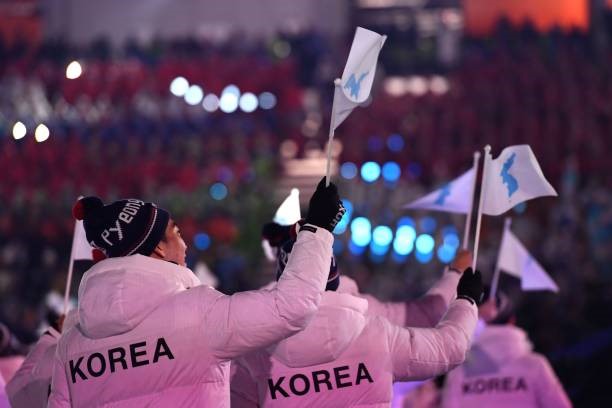
Olympics: A symbol of Global Resilience and Peace
There have been times when politics has hurt the Olympics, but there have also been times when the Olympics came out victorious over global politics. To conclude, let’s to take the case of the 1920 Antwerp Olympics. It was the first event after the First World War and the Spanish flu pandemic where a lot of the athletes who participated in the previous 1912 Olympics were no longer alive to be able to participate. While this was unfortunate and saddening, the event marked the remembrance of the war victims and the first appearance of the Olympic flag, featuring the interlocked rings and the Olympic oath. It showed how resilient the Olympics have been and how they repeatedly emerge above the problems that the world faces from time to time.
References
- Lev Topor. 2021. Opinion – The Olympic Games as a Reflection of Global Power. E-International Relations. https://www.e-ir.info/2021/08/15/opinion-the-olympic-games-as-a-reflection-of-global-power/#:~:text=The%20Olympic%20games%20may%20market,of%20force%20or%20economic%20pressure.
- Nye, J. Soft power: the origins and political progress of a concept. Palgrave Commun 3, 17008 (2017). https://doi.org/10.1057/palcomms.2017.8
- Felix Ritcher. 2020. The Olympics Attract Millions of Spectators. Statista. https://www.statista.com/chart/21046/number-of-tickets-sold-for-summer-olympic-games/
- US DoD Dictionary of Military Associated Terms (As of November 2021). https://www.jcs.mil/Portals/36/Documents/Doctrine/pubs/dictionary.pdf. Accessed February 4, 2022.
- Abhisek Gautam. 2020. Visual Analysis of Olympics Data. Towards Data Science. https://towardsdatascience.com/visual-analysis-of-olympics-data-16273f7c6cf2.
- Global Centre for the Responsibility to Protect. What is R2P?. https://www.globalr2p.org/what-is-r2p/. Accessed February 5, 2022.
- Dario Brentin, Löic Tregoures. 2016. Entering Through the Sport’s Door? Kosovo’s Sport Diplomatic Endeavours Towards International Recognition. Diplomacy and Statecraft. Volume 27, 2016 Issue 2. https://doi.org/10.1080/09592296.2016.1169799.
- IOC. 2019 Ninety-nine years ago, the Olympic flag was flown for the first time. Olympics.com. https://olympics.com/en/news/ninety-nine-years-ago-the-olympic-flag-was-flown-for-the-first-time.

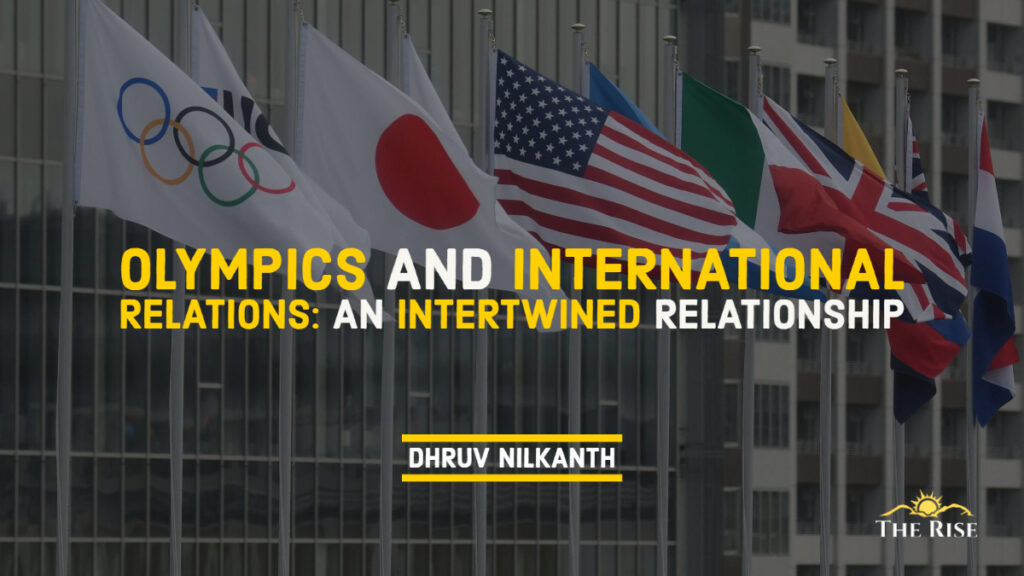

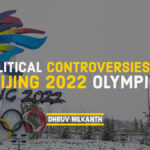
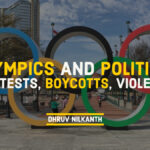


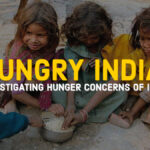








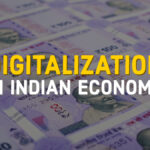

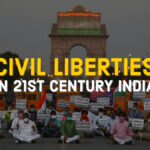
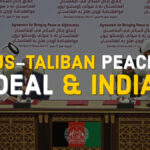



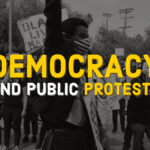
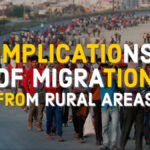

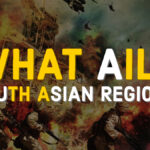
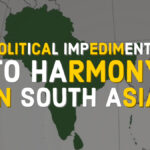









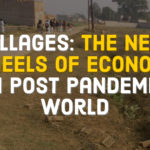


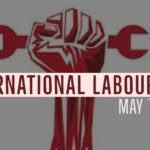






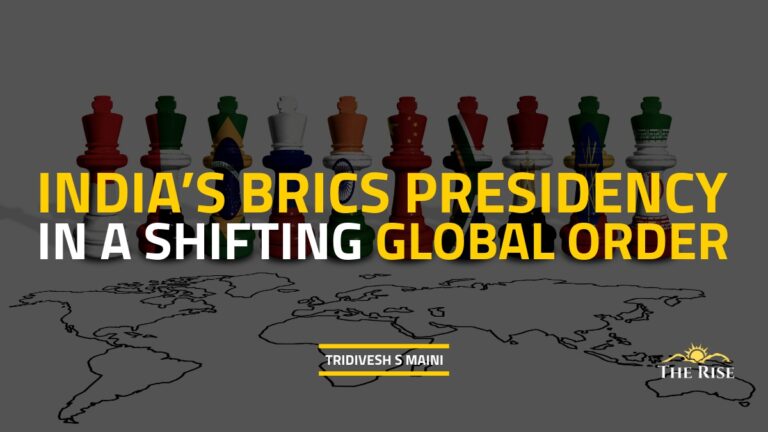



Pingback: The Political Nature of The Olympics: Protests, Boycotts, Violence
As interesting as Part 1!
Good Article 👍🏼
Pingback: Political Controversies at Beijing 2022 Olympics - TheRise.co.in
Pingback: International Relations: Beyond the Prism of 'Isms' - TheRise.co.in
Pingback: A Rundown of Sports Diplomacy - TheRise.co.in
Pingback: Odisha: A Guiding Light for Sports Tourism and Paradiplomacy